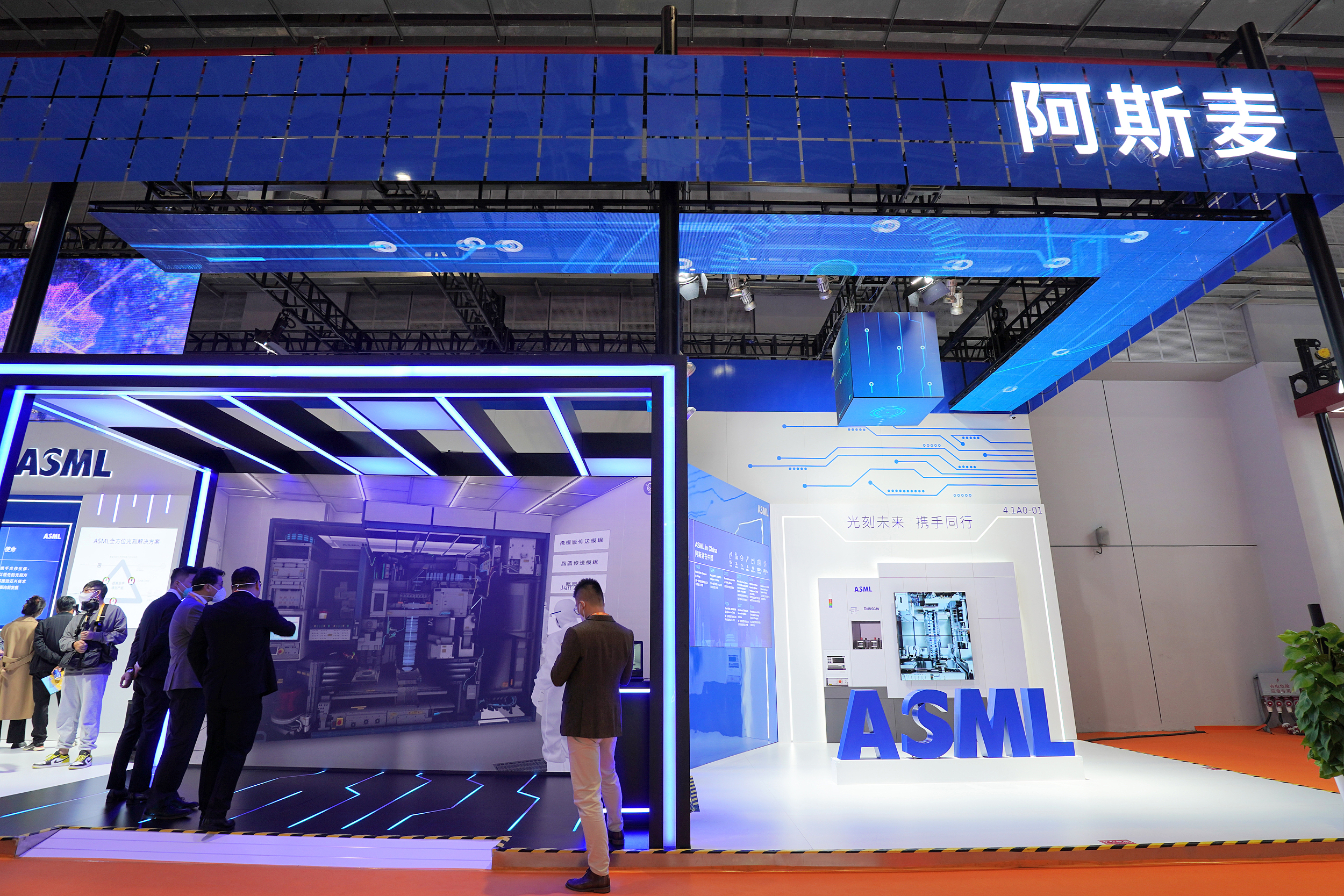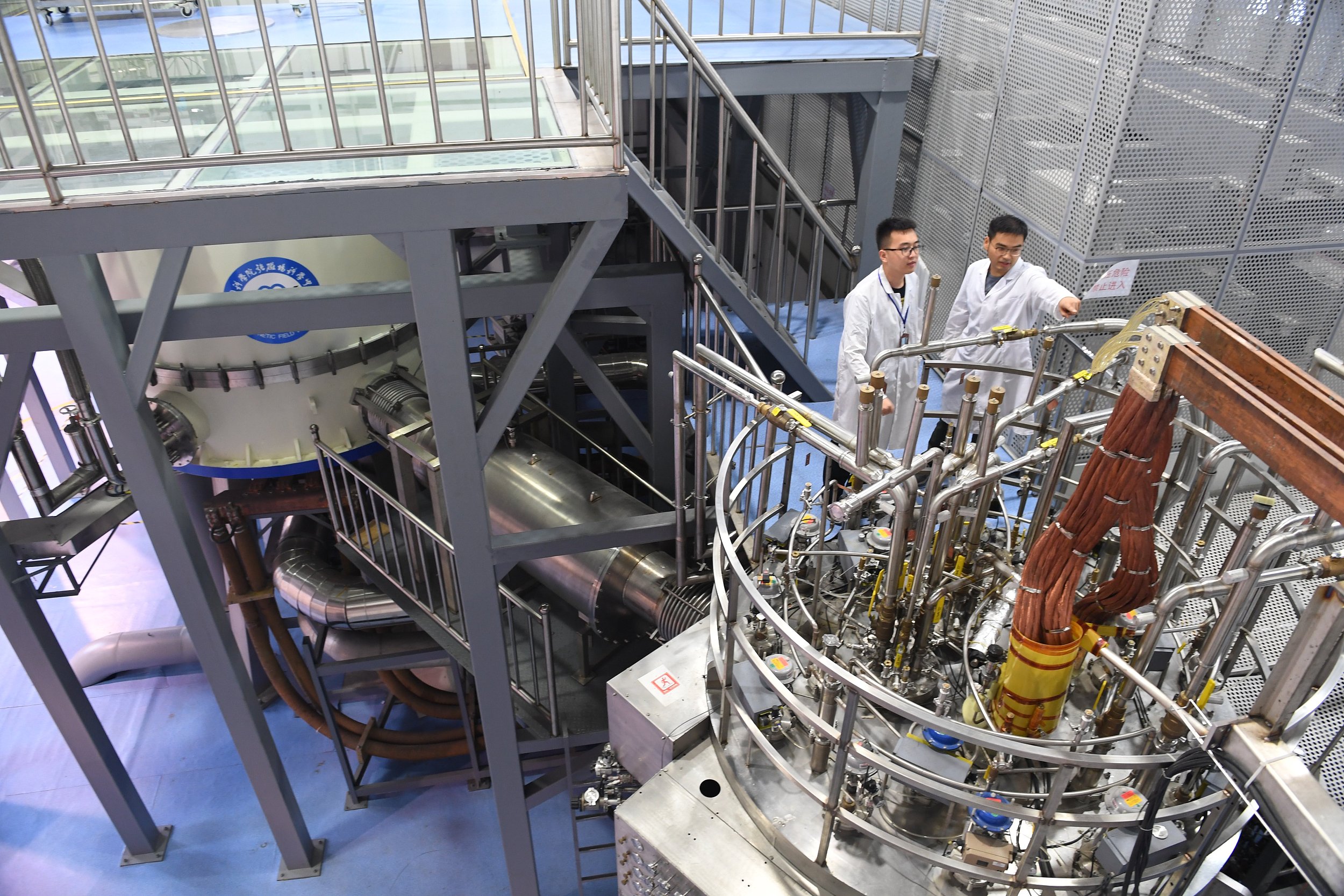Unfair U.S. Rules in Tech Exports Questioned

Visitors get up close to the lithography machine at the ASML's booth at the fifth China International Import Expo, which was held in Shanghai in November, 2022.(PHOTO: VCG)
By Gong Qian
The U.S. Department of Commerce(DOC) on December 15 said it added 36 Chinese companies and institutes to an export controls blacklist, giving the excuse of concerns over its national security and interests, and human rights once again.
Among them, 21 are identified as major firms involved in AI chip R&D, manufacturing, and sales, as well as aviation equipment, such as Yangtze Memory Technologies Co., Cambricon Technologies, and Chinese Academy of Sciences Institute of Computing Technology.
This means these companies are blocked from buying technology from U.S. suppliers unless they get a special export license from DOC. Meanwhile, some multinationals are also required to comply with the rules, not diverting technologies to China.
AP reported that the move is the latest restriction imposed by President Joe Biden's administration, signaling a hardening of U.S. efforts to prevent China from acquiring advanced technologies, following on from Trump's administration.
So far this year, the U.S. has issued a series of policies and rules to double its efforts in curbing China's tech advancement, most notably through the CHIPS and Science Act.
According to Christopher A. McNally, professor of Political Economy, Chaminade University, the restrictions will also have a serious impact on American corporations exporting chip manufacturing equipment to China. Lam Research and Applied Materials have already issued loss warnings.
In fact, the U.S. faces multiple challenges to making these rules successful. Firstly, U.S. rules must also apply in full to foreign corporations, especially in the Netherlands and Japan. In other words, they will have to be multilaterally enforced to be truly effective, wrote McNally.
The Netherlands and Japan are the world's top suppliers manufacturing advanced semiconductor machines. But the U.S. is also asking its allies not to sell equipments capable of making chips to China. This definitely hurts their interests, especially for Dutch company ASML, as China accounted for about 15 percent of the their revenue last year.
The CEO of ASML Peter Wennink questioned the U.S. move in an interview with newspaper NRC Handelsblad. He said that following U.S. pressure, the Dutch government has already restricted ASML from exporting its most advanced lithography machines to China since 2019. "ASML has already sacrificed," said Wennink.
It seemed contradictory that U.S. chip manufacturers are able to sell their most advanced chips to Chinese customers, while ASML is only able to sell older chipmaking equipment, said Wennink.
This is self-evident that the U.S. put itself above other countries for the sake of its own interests.
McNally said the second challenge is leakage, such as smuggling, diversion of exports, and illicit transfers of technology.
The U.S. was overstretching the concept of national security and targeting specific Chinese companies with discriminatory and unfair measures, politicizing and weaponizing economic and trade issues, said China's Foreign Ministry spokesperson Wang Wenbin. China will firmly defend the legitimate and lawful rights and interests of Chinese companies, said Wang.
China's Ministry of Commerce announced on December 12 that it has filed a lawsuit with the WTO against the U.S. over its export control on products such as chips to China.


